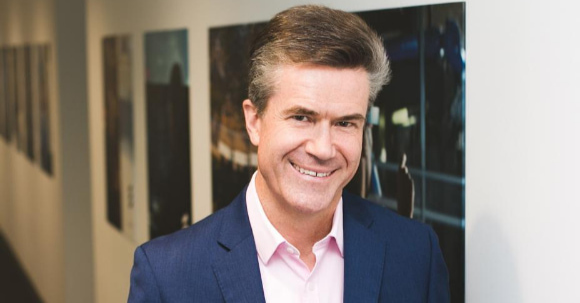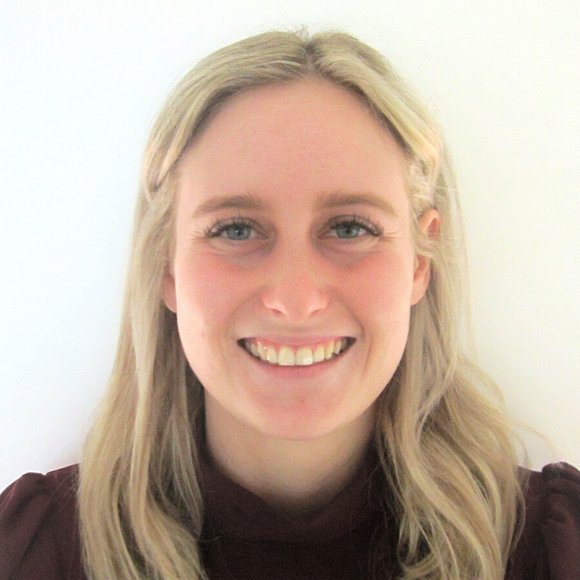Ericsson’s true colors have shone through in this crisis. ‘All hands to the pump’ is a common company saying, encapsulating the way their team pulls together with camaraderie and collaboration – especially when the going gets tough. Ericsson’s support for staff when COVID-19 hit and through this extended lockdown period highlights that the health and wellbeing of their people truly comes first.
In response to the pandemic, Ericsson developed an organizational triage framework that focuses on keeping people safe, socially connected, assured and empowered with as much clarity about the future as possible. We spoke to several Ericsson employees about flexibility, the company’s best-in-class COVID-19 response, and how things are shaping up moving forward.
Safety Now – A Rapid Response to Protect People

Head of People for Australia and New Zealand, Colin Pritchard, describes the organizational triage framework as,
“A way for us to organize and mobilize the most important things to help our people through the uncertainty. We want to help people with answering, ‘How do I move forward in this ambiguity, and navigate what’s going on in my world and feel hope?”
Safety Now is the first of the three inter-connected triage elements Ericsson must dynamically manage in this uncertainty. It is focused on the sense of immediacy around protecting Ericsson employees and their loved ones.
Andre Du Raan, Head of Health, Safety & Environment (HSE) for Australia and NZ says;
“The main driver is the health and safety of our people. They get first priority, as people make the company. We want to ensure our people can return home safely to their families at the end of each working day.”
Ericsson quickly set up:
- Working from home arrangements for office-based employees, ahead of government regulations.
- Temperature checks for those at offices or field sites.
- A centralized mail account allowing people to confidentially communicate questions or concerns.
- Free flu vaccination vouchers.
- A health and safety self-audit for home working.
- Delivery of office equipment to employees’ homes.
- Large quantities of Personal Protective Equipment including masks, gloves, hand sanitizer and alcohol wipes, especially for personnel who continue to work in the field.
- Registers and daily meetings to approve and manage people accessing physical premises.
- Border crossing approval processes for workers needing to cross state borders.

The experience of Marta Kiki, Project Coordinator at Ericsson Australia and NZ confirms the business’s efforts are working;
“This pandemic has shown the importance of good organizational culture. Ericsson has exceeded my expectations, and the way this situation has been managed by our leadership team, Crisis Management Task Force, and HSE team is nothing less than amazing. I was struggling with backaches from not having a proper workplace set up, but that didn’t last long. I received my chair, monitor and keyboard a week after we started working remotely. This has been a tremendous help.”
Connect Me with My Clan – Bringing People Together
In the second element of the organizational triage framework, Connect Me with My Clan, Colin explains Ericsson focuses on, “Fostering social connection and ensuring people don’t feel socially isolated even while they are physically isolated. We’ve run a health and wellbeing campaign focused on different themes, including physical wellbeing, mental health and resilience, working at home with children and caring for vulnerable people, as well as sharing fun activities helping people connect with their families and colleagues.”
Marta values being able to stay socially connected;
“In addition to office equipment, Ericsson has run health and wellbeing programs. My favorites are online yoga and Zumba. Our leadership team and managers have been very supportive. I have weekly catch-ups with my manager to check in and ensure I receive the support I need.”

Lenor Shepherd, a 2020 graduate who joined Ericsson four weeks before the company moved to remote working, describes her experience as a new employee during this unusual time;
“Turning to 100% remote working after just starting a new role was daunting. There were the natural anxieties of starting a new role, along with anxiety about establishing new working relationships and finding support from new colleagues. In an office environment it’s easy to walk up to someone and start a conversation. Online it can be more difficult to approach people. Thankfully, everyone has been nothing short of supportive and keen to get graduates like me involved. My team have been happy to help and support me, teach me new skills and answer any questions. I think because of the distance my colleagues have gone the extra mile to support me. Graduates are involved in catch-ups with graduate managers, HR, and the leadership team. We’re encouraged to initiate discussions and create fun activities to get to know each other better, while learning to host meetings. A daunting experience has been turned into a huge positive. I feel welcome and part of the Ericsson family.”
Help Me See the Future – Charting the Path Forward
The third component of Ericsson’s organizational triage framework is future focused.
Colin shares,
“It is a call to action [for leaders], about how you provide a sense of hope that we’re in an organization with a future and a sense of direction. We’re equipping our leaders with skills, regularly engaging with senior managers, celebrating wins, recognizing challenges, and continuing to be successful.”
The leadership team has recognized the importance of two crucial factors for navigating the COVID-19 uncertainty: leadership and communication. Focused efforts saw extremely strong scores in Ericsson’s employee engagement survey in May, during lockdown. Communication increased 11 points, to 19 points above industry benchmark. Prospects (‘I am excited about Ericsson’s future’) jumped 7 points to 8 above industry benchmark, with almost 90% favorable ratings.
On this question of confidence in Ericsson’s future, Sarah Goss, Head of Innovation for Australia and NZ says;
“We are at a moment in time which has really placed a spotlight on the idea of an ‘essential service’ and the essential nature of connectivity. It has been humbling and rewarding to feel a strong sense of purpose in the work we do enabling people to stay connected at this challenging time. We have seen a huge acceleration in digitization across the economy, including telehealth, remote learning, remote working and e-commerce – all enabled by our communications networks. It is exciting to think of 5G and the role Ericsson can play in Australia’s technology-led recovery and digital economy into the future. It helps give people direction and confidence.”
Work and Workplaces of the Future
Colin notes COVID-19 has amplified the need for flexibility.
“It is a reality that we need to attract and retain talent under different models. The old way is not the way skills are going to be exchanged in the next 10 – 20 years. A flexible approach allows us to be nimble to both organizational and individual needs.”
“Widespread flexible working is here to stay. Moving forward, offices will become different environments, geared towards collaborative spaces facilitating social interaction and group working.”
Sarah, who along with Colin also chairs Ericsson’s Diversity & Inclusion (D&I) Council, says;
“Now is the time to crack through the change we want in D&I. D&I enhances business performance and fully realizing these benefits will be a central factor in our evolution.”
Ericsson’s graduate intake has been in excess of 50% women for the last 6 years. The company invests in female IT and engineering undergraduates with a number of scholarships and internships, and runs an annual leadership program for talented women in the business called FUEL.
Ericsson’s diverse workforce comprises some 167 nationalities. In Australia, Ericsson partners with CareerSeekers to provide internships for asylum seekers and refugees, and most interns have remained as permanent hires. They are exploring a similar internship partnership to support people on the autism spectrum into jobs.
Ericsson’s continued commitment to these areas is a reflection of their underlying culture that has been unwavering under COVID. Ericsson’s true colors are shining through.
